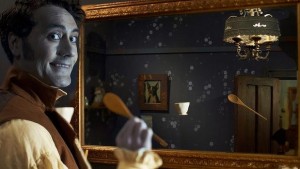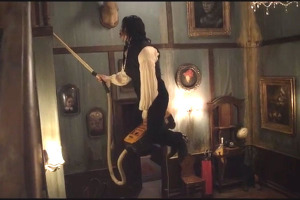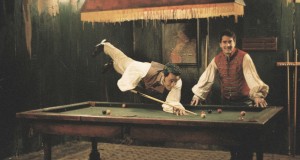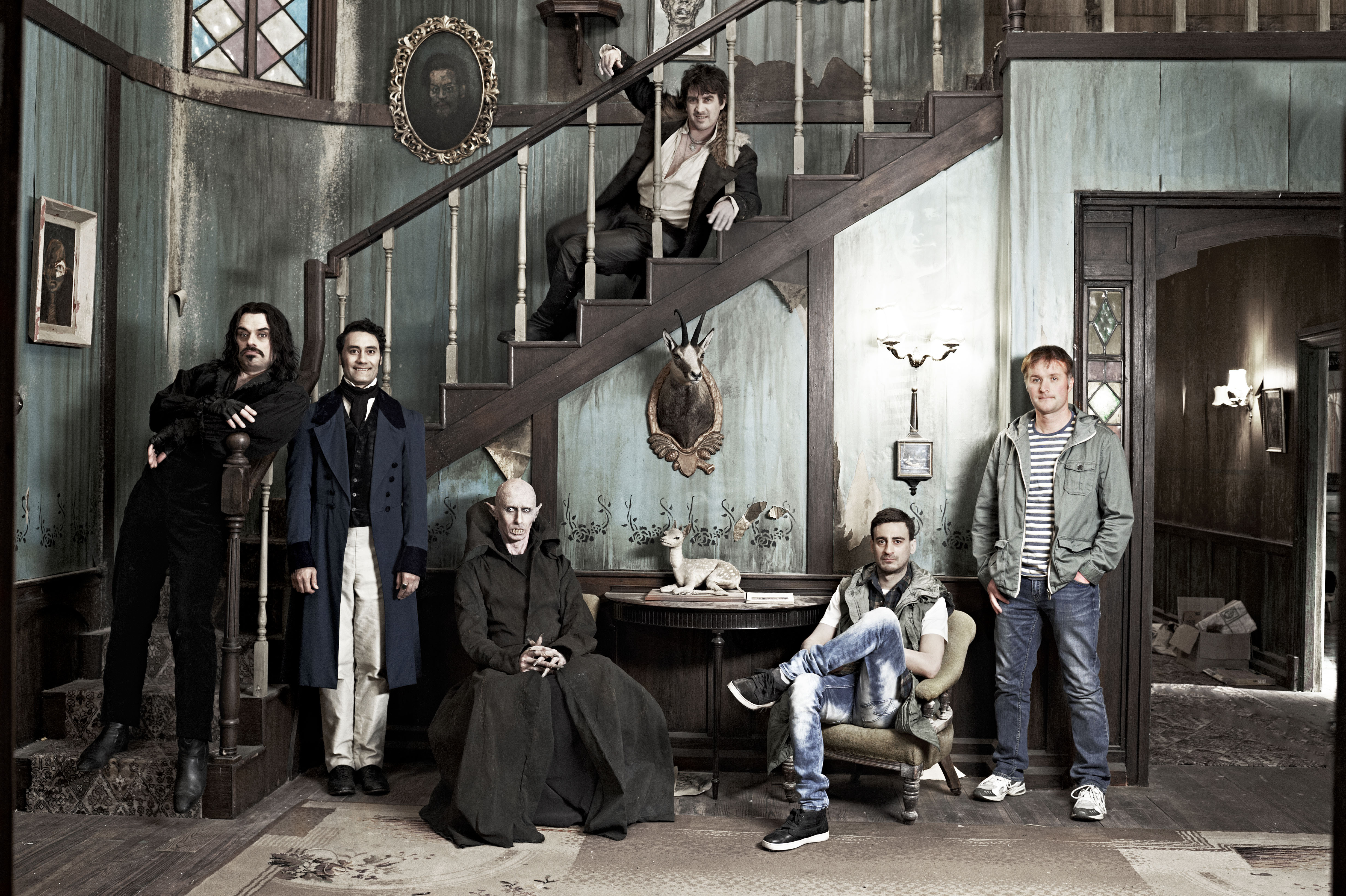
About a week ago, I was lucky enough to catch What We Do In The Shadows, a low-budget vampire mockumentary by the same team that brought us Flight Of The Conchords. The film revolves around the daily goings-on of a group of New Zealand-based vampires living together, and touches upon the complications of their bringing a new figure into the fray. Viago (Taika Waititi), Deacon (Jonathan Brugh), and Vladislav (Jemaine Clement) are the main trio of vampires that the mockumentary crew follow, although there is a fourth member of the group, Petyr (Ben Fransham, whose make-up resembles Nosferatu, and who actually wields some great comedic timing), who winds up transforming would-be victim Nick (Cori Gonzalez-Macuer) into a new mate.
It’d been an uphill battle for me to care about vampire, werewolf and zombie movies as of late, considering the over-saturation on television and in the theatres (to say nothing of Netflix’s deluge of options). By the time I, Frankenstein hit, not only did I not care about the genre, but I was actually angry with it and with any new releases. What We Do In The Shadows is the film that changed that point of view. It is refreshing, energetic, charming, and slickly produced.
And it is damned funny.

What this tired genre had lacked (from what I’d gleaned over the years and years) was a lack of character: zombie, werewolf, and — especially — vampire films had grown to a point where they seemed more interested and invested in their own mythology and self-importance, as well as showcasing their special effects, than in telling a compelling story. By improvising most of the dialogue, the characters are given a freshness and relation, and by keeping the film on such a small scale (and small budget), directors Clement and Waititi can focus solely on the characters and their relationship. We grow to learn about the characters and their mythology not because we’re told about them from narration or through boring exposition, but because the characters actually do stuff. The mockumentary conceit is utilized perfectly, and in the instances where special effects do come into play, they’re actually impressive since they’re utilized so rarely. When the audience is constantly barraged with non-stop special effects, we become numb to it and stop caring. And when that happens, well, we stop caring about the story and characters.
Most of the effects in the film are practical, and the most common effect is when the characters fly around; this is impressive, again, due to the shooting style, which is very cinema verite, handheld, and shot like a reality show. And, just as importantly, the effects add to the excessive humor. Nick’s first appearance as a vampire, for instance, occurs when he flies into the trio’s kitchen window; the kitchen is on the ground floor, and he takes about three minutes to maneuver himself through the window; when Vladislav asks “Why didn’t you just walk through the front door?” Nick replies: “Because I can fly. Why would I do anything else?” It had me rolling.

The comedy comes not only from parodying classic horror film tropes, but through actually utilizing them in the story (Viago’s hypnotizing of a pair of police officers investigating their home while Deacon and Nick are in the middle of a mid-air fistfight is a perfectly-executed example of this). Never did it feel as if the film were adhering to a trope or cliché simply for its own sake, and that’s the sort of freshness this tired genre needed. Even trying to explain away tropes of the genre, the film pokes fun at those very tropes (take this from Vladislav, explaining why they prefer virgin blood: “I think of it like this. If you are going to eat a sandwich, you would just enjoy it more knowing no one had fucked it.”). And, again, there is so much crazy energy in this film. From the shooting style, to the subversion of the genre, to how tightly choreographed each scene is, despite its improvisational style (the impressively prolonged, single-shot attack on Nick by the trio was so fast and hilarious that I need to watch it again: I know that I missed more than one joke simply due to the fact there were so many flying by at such a pace that by the time I was able to open my eyes from laughing, I’d missed some). And, thankfully, never did the film linger on any of its special effects.

But, ultimately, what worked so well were the characters themselves. We come to actually care about all the vampire clan (including Petyr, who holds the least amount of screentime but works the most with what he’s given). And, again, that’s so rare in films in this genre. This film is brilliantly staged, and each character is given enough backstory to make them fascinating and hilarious at the same time, and this gives the film a great emotional core (even small, seemingly insignificant moments, such as Nick lamenting that he can never eat his favorite food, chips, ever again).
In another pleasant surprise, the film ends on a high note, pleasantly and satisfyingly, almost begging to be revisited. Despite the level of violence and debauchery, the film is incredibly light and fun, and anything but grim and depressing. I would not have minded watching these characters for three hours (seeing as how over 120-hours of improvisational footage was shot, I’m praying for an extended cut at some point), and that says everything you would need to know about whether this film is worth seeking out.
And, sadly, as of this writing, you would need to seek it out. Despite being in limited release (and even then, only after a successful Kickstarter campaign), I highly recommend going out to find and enjoy this film. It turned a jaded cynic into a massive fan. Support this film, seek it out, and have a great night out with those who live in the shadows.
Enjoy the trailer (which, thankfully, does NOT give away the best parts):
5/5 Virgin Sandwiches.

